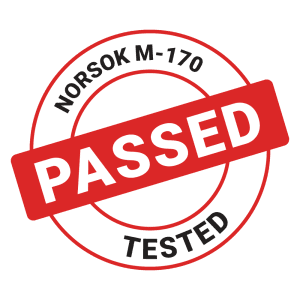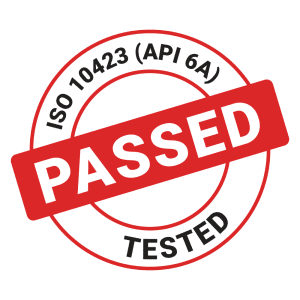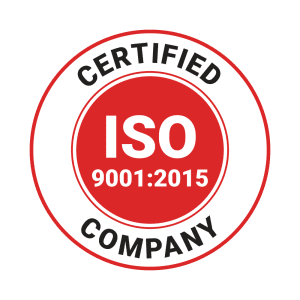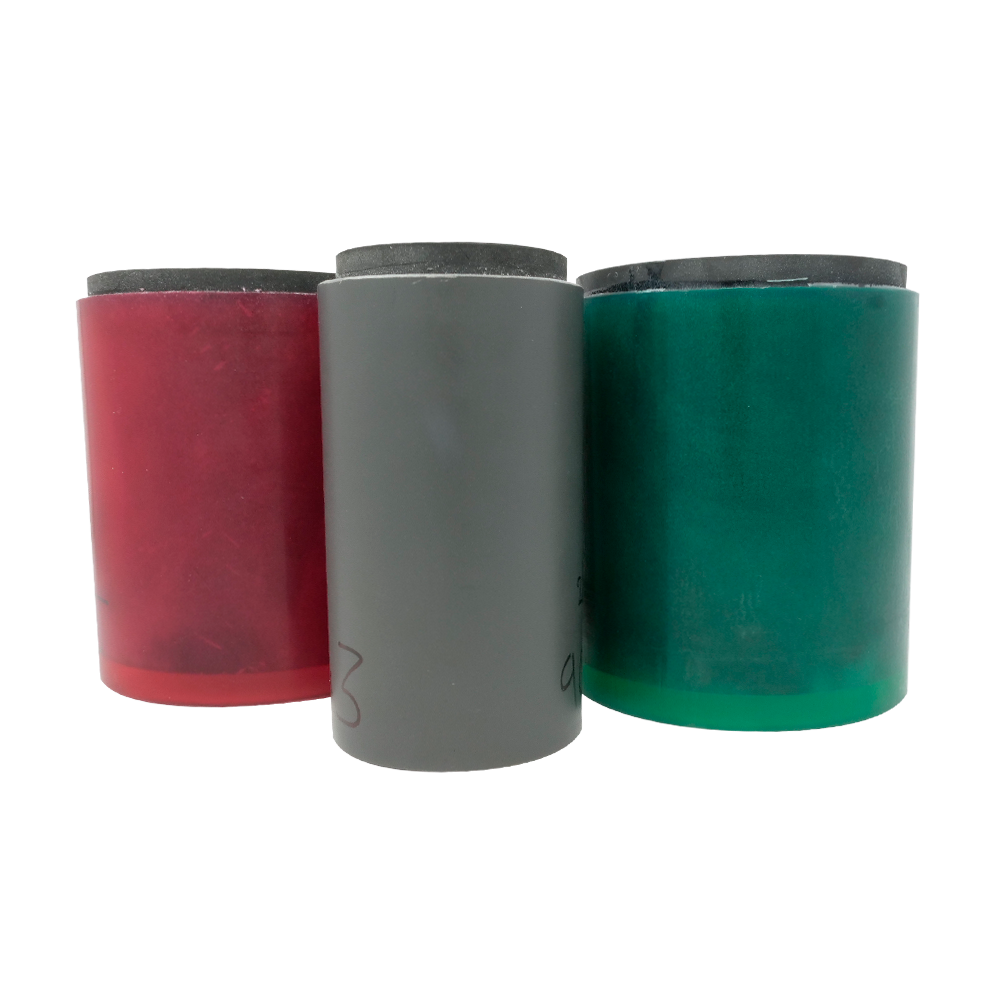Semi-finished Elastomer Rod and Tubes
Elastomer Rods & Tubes



Semi-finished Elastomer Rod and Tubes



K.C. Seals specializes in producing semi-finished elastomer rods and tubular stock through a state-of-the-art compression molding process, designed expressly for machining applications. This advanced method, distinct from traditional wrapped tubular shapes, ensures exceptional homogeneity and consistency during the curing stage. As a result, this approach enhances the mechanical integrity of our products, leading to elastomer stocks with superior mechanical properties, including improved durability and resilience in your finished products.
Our product line encompasses a diverse range of compounds to meet various industrial needs, including general purpose FKMs and HNBRs, as well as specially formulated compounds designed for enhanced extrusion resistance. Some of our compounds are API 11D1 approved, ensuring compliance with rigorous industry standards and offering reliable performance in critical applications. We offer variations in ACN (Acrylonitrile) content for NBRs (Nitrile Butadiene Rubber) and HNBRs (Hydrogenated Nitrile Butadiene Rubber) to match specific application parameters, allowing us to tailor material properties such as oil resistance, temperature tolerance, and mechanical strength to meet the precise needs of your applications. Additionally, through collaboration with our expert mixers, we can develop unique polymer blends tailor-made to your application requirements, ensuring that you receive materials optimized for performance, durability, and cost-effectiveness in your specific operational environment.
Lastly, each bar and tube is encased with our proprietary polymer blend, expertly formulated to reduce flaring during machining and to prolong the life of cutting inserts, thus elevating machining performance and efficiency. This proprietary blend not only enhances machining precision but also significantly reduces tool wear, leading to cost savings and increased productivity in your manufacturing processes.
For detailed sizing, pricing, and comprehensive descriptions of our selected compounds, kindly email us at info@kcseals.ca and we will send over our easy to navigate pricelist for review. Should you have any inquiries or require further assistance, please do not hesitate to book a meeting with us. We are here to help.
You’ve made it this far, but we know there is still more to discuss. Click on the book a meeting button below to easily setup up a date and time to talk more about your project. You can also email us at info@kcseals.ca
K.C. Seals specializes in producing semi-finished elastomer rods and tubular stock through a state-of-the-art compression molding process, designed expressly for machining applications. This advanced method, distinct from traditional wrapped tubular shapes, ensures exceptional homogeneity and consistency during the curing stage. As a result, this approach enhances the mechanical integrity of our products, leading to elastomer stocks with superior mechanical properties, including improved durability and resilience in your finished products.
Our product line encompasses a diverse range of compounds to meet various industrial needs, including general purpose FKMs and HNBRs, as well as specially formulated compounds designed for enhanced extrusion resistance. Some of our compounds are API 11D1 approved, ensuring compliance with rigorous industry standards and offering reliable performance in critical applications. We offer variations in ACN (Acrylonitrile) content for NBRs (Nitrile Butadiene Rubber) and HNBRs (Hydrogenated Nitrile Butadiene Rubber) to match specific application parameters, allowing us to tailor material properties such as oil resistance, temperature tolerance, and mechanical strength to meet the precise needs of your applications. Additionally, through collaboration with our expert mixers, we can develop unique polymer blends tailor-made to your application requirements, ensuring that you receive materials optimized for performance, durability, and cost-effectiveness in your specific operational environment.
Lastly, each bar and tube is encased with our proprietary polymer blend, expertly formulated to reduce flaring during machining and to prolong the life of cutting inserts, thus elevating machining performance and efficiency. This proprietary blend not only enhances machining precision but also significantly reduces tool wear, leading to cost savings and increased productivity in your manufacturing processes.
For detailed sizing, pricing, and comprehensive descriptions of our selected compounds, kindly email us at info@kcseals.ca and we will send over our easy to navigate pricelist for review. Should you have any inquiries or require further assistance, please do not hesitate to book a meeting with us. We are here to help.

Compression molding ensures that the rubber material is evenly distributed and cured throughout the product. This uniformity is difficult to achieve with wrapping, which can result in variations in thickness and density, leading to potential weak points and inconsistencies in performance.
The high pressure and heat applied during compression molding result in a more homogeneous and structurally sound product. Wrapped rubber tubes may have seams or overlaps that can compromise their integrity and lead to premature failure under stress.
Compression molded products typically have a smoother and more uniform surface finish compared to wrapped products. This is important for applications where surface quality is critical, such as in sealing and gasket applications.
Compression molded rubber rods and tubes exhibit superior mechanical properties, such as greater tensile strength, elongation, and toughness. These properties are essential for applications that require high resilience and the ability to absorb shocks and vibrations.
For research and development (R&D) projects, it is often more advantageous to machine and trial the product from a molded billet rather than a wrapped product. This approach allows for more accurate testing and evaluation of the material’s properties and performance. If the project moves into production, the transition to compression molding from a molded billet is more seamless and ensures that the final product maintains the same high standards of quality and consistency.
| Material Code | Application | Description | Temperature Range |
| NBR-WE130-B | General Purpose Nitrile (NBR, Buna) 80 Durometer | NBR 80 (Nitrile Butadiene Rubber), also known as Buna-N, is a versatile, cost-effective material widely used for general-purpose applications. It offers robust mechanical properties and basic resistance to many lubricants. NBR 80 performs well in applications needing FDA compliance and metal detectability, with good to excellent resistance to compression set, tear, abrasion, and substances like petroleum oils, hydraulic fluids, alcohol, water, silicone greases, Di-ester lubricants, and ethylene-glycol based fluids. It has a service temperature range of -30 to 250°F and meets ASTM 2000 M2BG710 specifications. However, it is not suitable for environments with ozone, UV, weathering, certain fuels, and solvents. For specific compound formulations, consulting with engineering is recommended. | -35°C to 120°C (-30°F to 250°F) |
| NBR93100-B | General Purpose Nitrile (NBR, Buna) 90 Durometer | NBR 90 (Nitrile Butadiene Rubber with a durometer hardness of 90 Shore A) is a highly durable material suited for demanding applications requiring resistance to wear, deformation, and mechanical stress. It excels in environments with oils, fuels, and various chemicals, maintaining integrity under high pressure and mechanical loads due to its superior load-bearing capacity and dimensional stability. However, NBR 90 is not suitable for exposure to ozone, UV, weathering, certain fuels, and solvents. For optimal performance, consulting with engineering for the appropriate compound formulation is recommended. NBR 90 is ideal for applications needing high durability and mechanical strength in industrial settings. | -35°C to 120°C (-30°F to 250°F) |
| HSN83002-B | General Purpose Hydrogenated Nitrile Butadiene Rubber (HSN, HNBR) 80 Durometer | HNBR 80 is a high-performance synthetic rubber known for its excellent resistance to heat, chemicals, and mechanical stress. Created by hydrogenating NBR, it offers enhanced durability against degradation from heat, oil, and chemical exposure. HNBR 80 is ideal for demanding applications, providing superior resistance to petroleum-based oils, fuels, aliphatic hydrocarbons, silicone oils, greases, and ethylene glycol. It also withstands hot water, steam, and diluted acids and bases, operating effectively from -40°F to 325°F. The harder durometer increases durability and load-bearing capacity, making it perfect for high-pressure applications, with improved abrasion and extrusion resistance for longer service life. However, it should be avoided in environments with highly polar solvents like acetone, ozone, UV, and weathering conditions. HNBR 80 is a cost-effective alternative to more expensive fluorocarbon elastomers, commonly used in automotive, industrial, and oil and gas applications. | -40°C to 150°C (-40°F to 302°F) |
| HSN93001-B | General Purpose Hydrogenated Nitrile Butadiene Rubber (HSN, HNBR) 90 Durometer | HNBR 90 (Hydrogenated Nitrile Butadiene Rubber with a durometer hardness of 90 Shore A) is a high-performance material known for its exceptional durability and resistance to heat, chemicals, and mechanical stress. It excels in applications involving petroleum-based oils, fuels, aliphatic hydrocarbons, silicone oils, and greases. Operating effectively from -40°F to 325°F, its increased hardness provides superior abrasion and extrusion resistance, ideal for heavy-duty uses. Not recommended for highly polar solvents and ozone, HNBR 90 is widely used in automotive, industrial, and oil and gas sectors. | -40°C to 150°C (-40°F to 302°F) |
| MCM3008-B | Swell Resistant HNBR 80 Durometer | MCM3008 is an advanced 80 durometer Hydrogenated Nitrile Butadiene Rubber (HNBR) compound specifically formulated for applications requiring exceptional chemical resistance and durability. The peroxide curing process enhances its resistance to high temperatures and aggressive chemicals, making it ideal for use in harsh drilling environments, such as oil-based muds (OBMs), inverts, and brines. This compound’s notable feature is its exceptional swell resistance, which ensures reliable performance and longevity even when exposed to various fluids commonly encountered in drilling operations. With a high tensile strength of approximately 4000 psi, MCM3008 demonstrates superior robustness and mechanical strength, essential for maintaining integrity under challenging conditions. | -35°C to 160°C (-30°F to 320°F) |
| MCM3009-B | Swell Resistant HNBR 90 Durometer | MCM3009, a 90 durometer HNBR compound, is a peroxide-cured material engineered for high chemical resistance and superior performance in demanding environments such as oil-based muds (OBMs), inverts, and brines common in drilling applications. This HNBR compound is known for its exceptional swell resistance in various fluids and boasts a high tensile strength exceeding 4000 psi, highlighting its robustness. With a service temperature range of -35°C to 160°C (-30°F to 320°F), MCM3009 is an outstanding choice for applications requiring strength, durability, and chemical resilience. | -35°C to 160°C (-30°F to 320°F) |
| 15760-B | Extrusion Resistant HNBR (HSN)
| The 15760-B is a newly developed 90+ durometer HNBR compound specifically designed for exceptional extrusion resistance. Its high durometer of 90+ Shore A contributes to its rigidity, significantly reducing deformation and preventing extrusion into gaps and clearances. Additionally, with a high modulus of elasticity, the 15760-B exhibits superior stiffness, further enhancing its resistance to mechanical deformation. While the optimized formulation includes specific fillers that increase the compound’s mechanical strength and stability. This combination ensures that 15760-B maintains its integrity under extreme conditions, making it an ideal choice for demanding applications in the oil and gas industry. | −450°F to 500°F (−270°C to 260°C) |
| 354260-B
| API 11D1 Approved HNBR (HSN) 80 Durometer
| The 354260-B compound, an HNBR material with an 80 durometer hardness, has successfully passed rigorous testing under conditions corresponding to API 11D1 V3, and V0 grades. This API standard encompasses stringent requirements for downhole equipment, specifically focusing on packer elements and other sealing components used in the oil and gas industry. Achieving V3 and V0 grade certifications under API 11D1 indicates that this HNBR material possesses exceptional mechanical properties and durability, demonstrating a remarkable capacity for maintaining seal integrity even under the high-pressure and high-temperature conditions typical of downhole environments. The ability of the 354260-B compound to operate effectively across a wide temperature range of -35°C to 160°C (-30°F to 320°F) further emphasizes its adaptability and resilience. The successful adherence to such a reputable standard is a testament to the compound’s superior quality, making it a formidable choice for critical applications in the demanding field of oil and gas extraction and production. | -35°C to 160°C (-30°F to 320°F)
|
| 115881-B
| API 11D1 Approved HNBR (HSN) 90 Durometer
| The 354260-B compound, an HNBR material with an 90 durometer hardness, has successfully passed rigorous testing under conditions corresponding to API 11D1 V3, and V0 grades. This API standard encompasses stringent requirements for downhole equipment, specifically focusing on packer elements and other sealing components used in the oil and gas industry. Achieving V3 and V0 grade certifications under API 11D1 indicates that this HNBR material possesses exceptional mechanical properties and durability, demonstrating a remarkable capacity for maintaining seal integrity even under the high-pressure and high-temperature conditions typical of downhole environments. The ability of the 354260-B compound to operate effectively across a wide temperature range of -35°C to 160°C (-30°F to 320°F) further emphasizes its adaptability and resilience. The successful adherence to such a reputable standard is a testament to the compound’s superior quality, making it a formidable choice for critical applications in the demanding field of oil and gas extraction and production. | -35°C to 160°C (-30°F to 320°F)
|
| 460360-B
| General Purpose FKM 80A (Fluoroelastomer, Viton®)
| FKM (Fluoroelastomer) is an exceptional sealing material valued for its high-temperature resistance and compatibility with various chemicals. It operates efficiently within a temperature range of -26°C to 204°C (-15°F to 400°F), making it suitable for high-temperature environments and/or applications demanding chemical resistance. FKM seals are resistant to an array of substances including HFD-S and R fluids, mineral, vegetable, silicone, and biodegradable oils, hydrocarbons, alcohols, diesel, gasoline, fuels, ozone, oxygen, and air up to 200°C. However, they are not resistant to steam. Commonly used for both static and dynamic sealing applications, FKM is ideal for standard and special seals, wipers, O-rings, flange seals, and rotary seals, as well as for rubber energizers or preload elements in various sealing configurations. Its resilience in facing extreme conditions is why FKM is the preferred choice in industries that prioritize longevity and reliability, such as aerospace, automotive, and chemical processing. | -26°C to 204°C (-15°F to 400°F)
|
| 441360-B
| General Purpose FKM 90A (Fluoroelastomer, Viton®)
| FKM (Fluoroelastomer) is an exceptional sealing material valued for its high-temperature resistance and compatibility with various chemicals. It operates efficiently within a temperature range of -26°C to 204°C (-15°F to 400°F), making it suitable for high-temperature environments and/or applications demanding chemical resistance. FKM seals are resistant to an array of substances including HFD-S and R fluids, mineral, vegetable, silicone, and biodegradable oils, hydrocarbons, alcohols, diesel, gasoline, fuels, ozone, oxygen, and air up to 200°C. However, they are not resistant to steam. Commonly used for both static and dynamic sealing applications, FKM is ideal for standard and special seals, wipers, O-rings, flange seals, and rotary seals, as well as for rubber energizers or preload elements in various sealing configurations. Its resilience in facing extreme conditions is why FKM is the preferred choice in industries that prioritize longevity and reliability, such as aerospace, automotive, and chemical processing. | -26°C to 204°C (-15°F to 400°F)
|
| FKM80BRN-B
| Brown FKM 80A (Fluoroelastomer, Viton®)
| The FKM80BRN-B, a brown Fluorocarbon elastomer widely known by the trade names VITON® and FKM, is an advanced sealing material recognized for its formidable resistance to heat, hydraulic fluids, chemicals, and various organic compounds. It exhibits exceptional performance in temperatures ranging from -25°C to 210°C (-13°F to 410°F). FKM seals are resistant to an array of substances including HFD-S and R fluids, mineral, vegetable, silicone, and biodegradable oils, hydrocarbons, alcohols, diesel, gasoline, fuels, ozone, oxygen, and air up to 200°C. However, they are not resistant to steam. Commonly used for both static and dynamic sealing applications, FKM is ideal for standard and special seals, wipers, O-rings, flange seals, and rotary seals, as well as for rubber energizers or preload elements in various sealing configurations. Its resilience in facing extreme conditions is why FKM is the preferred choice in industries that prioritize longevity and reliability, such as aerospace, automotive, and chemical processing. | -25°C to 210°C (-13°F to 410°F),
|
| FKM90BRN-B
| Brown FKM 90A (Fluoroelastomer, Viton®)
| The FKM90BRN-B, a brown Fluorocarbon elastomer widely known by the trade names VITON® and FKM, is an advanced sealing material recognized for its formidable resistance to heat, hydraulic fluids, chemicals, and various organic compounds. It exhibits exceptional performance in temperatures ranging from -25°C to 210°C (-13°F to 410°F). FKM seals are resistant to an array of substances including HFD-S and R fluids, mineral, vegetable, silicone, and biodegradable oils, hydrocarbons, alcohols, diesel, gasoline, fuels, ozone, oxygen, and air up to 200°C. However, they are not resistant to steam. Commonly used for both static and dynamic sealing applications, FKM is ideal for standard and special seals, wipers, O-rings, flange seals, and rotary seals, as well as for rubber energizers or preload elements in various sealing configurations. Its resilience in facing extreme conditions is why FKM is the preferred choice in industries that prioritize longevity and reliability, such as aerospace, automotive, and chemical processing. | -25°C to 210°C (-13°F to 410°F),
|
You’ve made it this far, but we know there is still more to discuss. Click on the book a meeting button below to easily setup up a date and time to talk more about your project. You can also email us at info@kcseals.ca
